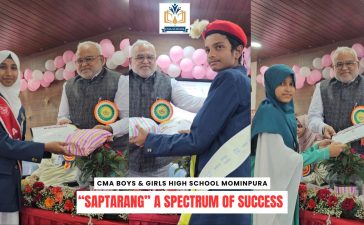“UGC Regulations 2025 Under Fire: Education Experts Warn of Threat to Federalism and Academic Freedom”
In a strongly worded critique of the newly released Draft UGC Regulations 2025, eminent educationists, former vice-chancellors, and academic leaders gathered at a roundtable meeting organized by the All India Save Education Committee (AISEC) in Bengaluru. The event, held at the Forum of Former Vice-Chancellors of Karnataka, saw widespread condemnation of the regulations, with participants accusing the central government of undermining federalism, social justice, and the autonomy of higher education institutions.
The meeting, attended by prominent figures such as Prof. A.H. Rajasab, retired Vice-Chancellor of Tumkur University, and Dr. S. Chandrashekar Shetty, President of the Karnataka Former Vice-Chancellors’ Forum, highlighted the potential adverse impacts of the UGC Regulations 2025. Key concerns included the centralization of power, marginalization of state governments, and the erosion of academic freedom.
Key Concerns Raised
- Threat to Marginalized Groups:
Prof. A.H. Rajasab warned that the regulations would disproportionately affect marginalized communities, including women, rural populations, backward classes, and persons with disabilities. He criticized the central government for attempting to take complete control of the education sector, stating, “These regulations will deprive marginalized groups of access to education and employment opportunities.” - Erosion of Federalism: Dr. Victor Lobo, Vice Chancellor of St. Joseph’s University, accused the UGC of acting as if it were above the Constitution and legislative assemblies. “The central government is taking over education completely, disregarding the federal structure and the role of state governments,” he said.
- Undermining University Autonomy: Shri V.N. Rajshekhar, AISEC State Vice President, argued that the regulations would destroy the autonomy of universities, leading to excessive centralization of power. “This will hinder the growth of knowledge, free thinking, and research in the country,” he emphasized.
- Lack of Democratic Process:
Participants criticized the UGC for drafting the regulations without consulting students, lecturers, and other stakeholders. Prof. Rajasab stated, “Policies should be formulated only after consulting those directly affected by them. The UGC has failed to follow any democratic process.” - Neglect of Regional Languages:
Dr. M.S. Ashadevi, a writer and professor, expressed concern over the lack of clarity on the promotion of regional languages like Kannada. “The draft regulations appear to be the final nail in the coffin for higher education, as they ignore the importance of regional languages,” she said. - Exploitation of Guest Faculty:
Kannada professor L.G. Mira highlighted the plight of guest lecturers, who face job insecurity and lack financial assistance. “The current situation offers no solutions for guest faculty and pushes them into further insecurity,” she stated.
Calls for Action
The roundtable concluded with a unanimous resolution to submit the meeting’s resolutions to both the state and central governments. Participants urged the government to reconsider the regulations and involve education experts in policy-making. “Educational policies should be framed by education experts, not governments,” said Shri V.N. Rajshekhar.
Prof. T.D. Kemparaj, former Vice Chancellor of Bangalore University, emphasized the need to avoid marginalizing state governments. “Since most responsibilities for higher education lie with state governments, their role should not be undermined,” he said.
Background Context
The UGC Regulations 2025 have sparked nationwide controversy, with states like Karnataka, West Bengal, and Tamil Nadu opposing the central government’s attempts to impose uniform policies. Critics argue that the regulations violate the federal structure of the Constitution and disregard the diverse needs of India’s education system.
The meeting in Bengaluru is part of a growing resistance against the centralization of education and the perceived erosion of state autonomy. As the debate intensifies, the future of India’s higher education system hangs in the balance.
Conclusion:
The roundtable meeting in Bengaluru has amplified the voices of educationists and academic leaders opposing the UGC Regulations 2025. As the debate over the future of India’s higher education system continues, the call for inclusive, democratic, and federal policies grows louder. The resolutions from the meeting are expected to put additional pressure on the central government to reconsider its approach and engage in meaningful consultations with stakeholders.
Important Quotes:
- “These regulations will deprive marginalized groups of access to education and employment opportunities.” – Prof. A.H. Rajasab
- “The central government is taking over education completely, disregarding the federal structure and the role of state governments.” – Dr. Victor Lobo
- “Educational policies should be framed by education experts, not governments.” – Shri V.N. Rajshekhar
- “The draft regulations appear to be the final nail in the coffin for higher education, as they ignore the importance of regional languages.” – Dr. M.S. Ashadevi
Contact For Coverage: indianowme@gmail.com
![]()











